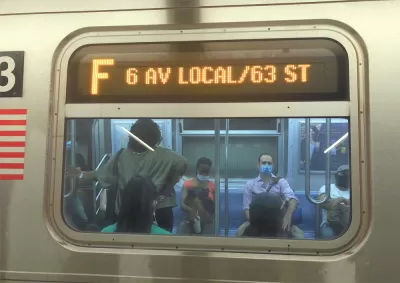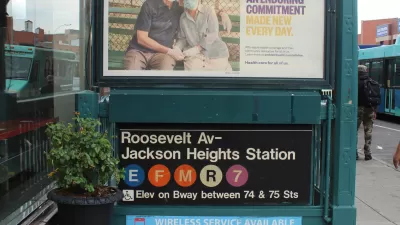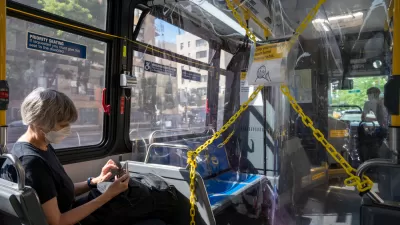A big piece of the process of reopening New York City for business is scheduled for May 17, but numerous challenges remain in getting the city that never sleeps back on track.

New York City will return to 24-hour subway service on May 17, report Winnie Hu, Daniel E. Slotnik, and Luis Ferré-Sadurní. The restoration of around-the-clock service is one of a series of reopenings announced for New York, New Jersey, and Connecticut this week.
"Restaurants, offices, retail stores, theaters, museums, barber shops, amusement parks and gyms and fitness centers will all be allowed to operate at full capacity for the first time since restrictions were adopted last year to prevent the spread of the virus," according to the article."
The announcement by New York Governor Andrew Cuomo accelerates the plans of political rival and mayor of New York City, Bill de Blasio, who had recently announced a reopening goal of July 1 for the city.
"Businesses in New York will still have to abide by the Centers for Disease Control and Prevention’s social distancing guidelines, which require a minimum of six feet of space between individuals," according to the article, noting that it might still not make sense for some businesses to reopen.
A separate article by Clayton Guse focuses more specifically on the subway reopening. Guse reports that while announcing the subway reopening, the governor touted the improvements made to the subway system during the months with limited service. "Subway trains have never been cleaner than they are now," said Cuomo.
Guse notes that one significant challenge still complicating the reopening of overnight subway service is a worker shortage at the MTA. "The agency has quietly cut more than 4,000 jobs since the start of the pandemic, leaving too few crews to run full bus and subway schedules," according to Guse.

Planetizen Federal Action Tracker
A weekly monitor of how Trump’s orders and actions are impacting planners and planning in America.

Congressman Proposes Bill to Rename DC Metro “Trump Train”
The Make Autorail Great Again Act would withhold federal funding to the system until the Washington Metropolitan Area Transit Authority (WMATA), rebrands as the Washington Metropolitan Authority for Greater Access (WMAGA).

The Simple Legislative Tool Transforming Vacant Downtowns
In California, Michigan and Georgia, an easy win is bringing dollars — and delight — back to city centers.

The States Losing Rural Delivery Rooms at an Alarming Pace
In some states, as few as 9% of rural hospitals still deliver babies. As a result, rising pre-term births, no adequate pre-term care and harrowing close calls are a growing reality.

The Small South Asian Republic Going all in on EVs
Thanks to one simple policy change less than five years ago, 65% of new cars in this Himalayan country are now electric.

DC Backpedals on Bike Lane Protection, Swaps Barriers for Paint
Citing aesthetic concerns, the city is removing the concrete barriers and flexposts that once separated Arizona Avenue cyclists from motor vehicles.
Urban Design for Planners 1: Software Tools
This six-course series explores essential urban design concepts using open source software and equips planners with the tools they need to participate fully in the urban design process.
Planning for Universal Design
Learn the tools for implementing Universal Design in planning regulations.
Smith Gee Studio
City of Charlotte
City of Camden Redevelopment Agency
City of Astoria
Transportation Research & Education Center (TREC) at Portland State University
US High Speed Rail Association
City of Camden Redevelopment Agency
Municipality of Princeton (NJ)





























